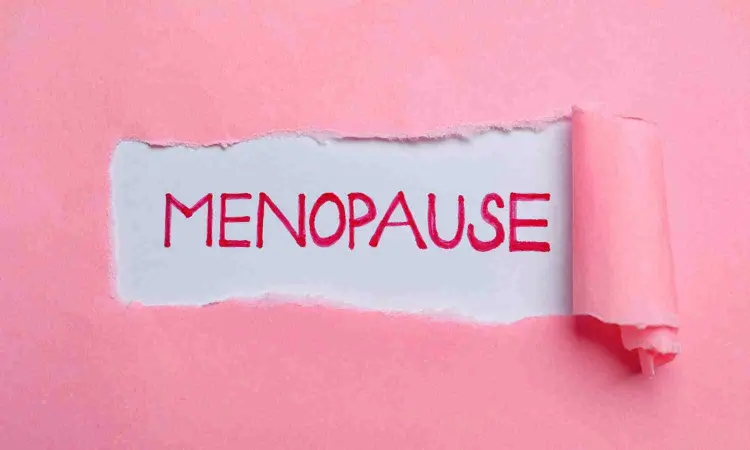- Home
- Medical news & Guidelines
- Anesthesiology
- Cardiology and CTVS
- Critical Care
- Dentistry
- Dermatology
- Diabetes and Endocrinology
- ENT
- Gastroenterology
- Medicine
- Nephrology
- Neurology
- Obstretics-Gynaecology
- Oncology
- Ophthalmology
- Orthopaedics
- Pediatrics-Neonatology
- Psychiatry
- Pulmonology
- Radiology
- Surgery
- Urology
- Laboratory Medicine
- Diet
- Nursing
- Paramedical
- Physiotherapy
- Health news
- Fact Check
- Bone Health Fact Check
- Brain Health Fact Check
- Cancer Related Fact Check
- Child Care Fact Check
- Dental and oral health fact check
- Diabetes and metabolic health fact check
- Diet and Nutrition Fact Check
- Eye and ENT Care Fact Check
- Fitness fact check
- Gut health fact check
- Heart health fact check
- Kidney health fact check
- Medical education fact check
- Men's health fact check
- Respiratory fact check
- Skin and hair care fact check
- Vaccine and Immunization fact check
- Women's health fact check
- AYUSH
- State News
- Andaman and Nicobar Islands
- Andhra Pradesh
- Arunachal Pradesh
- Assam
- Bihar
- Chandigarh
- Chattisgarh
- Dadra and Nagar Haveli
- Daman and Diu
- Delhi
- Goa
- Gujarat
- Haryana
- Himachal Pradesh
- Jammu & Kashmir
- Jharkhand
- Karnataka
- Kerala
- Ladakh
- Lakshadweep
- Madhya Pradesh
- Maharashtra
- Manipur
- Meghalaya
- Mizoram
- Nagaland
- Odisha
- Puducherry
- Punjab
- Rajasthan
- Sikkim
- Tamil Nadu
- Telangana
- Tripura
- Uttar Pradesh
- Uttrakhand
- West Bengal
- Medical Education
- Industry
Severe menopause symptoms may take toll on brain health, reports study

With more than 24 million people globally living with dementia without a cure in sight, there is a lot of focus on ways to prevent and delay cognitive impairment. A new study suggests that severe menopause symptoms such as hot flashes and depression can negatively affect cognitive function in postmenopausal women. Results of the study are published online in Menopause, the journal of The Menopause Society.
In conjunction with our aging population, dementia diagnoses are on the rise. It is estimated that 4.6 million new cases are diagnosed every year, which translates into one person being diagnosed with dementia every 7 seconds. That means dementia cases are expected to double every 20 years, reaching 81.1 million by 2040.
The good news is that medical experts estimate that 40% of cases of Alzheimer disease, the most common form of dementia, can be prevented or, at minimum, delayed. Because of this fact, there is a lot of interest in identifying risk factors. Recent research has focused on the importance of estradiol in female cognitive aging. Because the menopause transition is characterized by a decline in estrogen, postmenopausal women are at an increased risk of dementia.
A new study involving nearly 1,300 late-postmenopausal women from nine Latin American countries suggests that severe menopause symptoms such as hot flashes, sleep, and mood disturbances were linked with cognitive impairment. Whether effectively treating hot flashes with hormone therapy or other approved therapies can help improve cognition in the form of memory, attention, language, and executive function, is unknown.
Based on these results, the researchers concluded that there is intricate interplay between hormonal, lifestyle, and sociodemographic factors involved with cognitive health.
Study results are published in the article “Severe menopausal symptoms linked to cognitive impairment: an exploratory study.”
“This study showed a potential link between severe menopause symptoms and cognitive impairment in midlife women. The results also suggest a protective effect of lower body mass index, higher educational level, physical exercise, hormone therapy use, and sexual activity on cognition, highlighting the potential for targeted interventions to protect and preserve cognitive function in menopausal women,” says Dr. Stephanie Faubion, medical director for The Menopause Society.
Dr Kamal Kant Kohli-MBBS, DTCD- a chest specialist with more than 30 years of practice and a flair for writing clinical articles, Dr Kamal Kant Kohli joined Medical Dialogues as a Chief Editor of Medical News. Besides writing articles, as an editor, he proofreads and verifies all the medical content published on Medical Dialogues including those coming from journals, studies,medical conferences,guidelines etc. Email: drkohli@medicaldialogues.in. Contact no. 011-43720751


